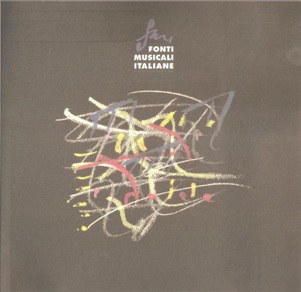Le presunte “seconde versioni” del Ms. Mod α.M.13: intervento revisionale di Johannes Martini?*
Abstract
Il manoscritto Mod α.M.13 della Biblioteca Estense e Universitaria di Modena, compilato a Ferrara nel 1481, attesta tre messe che, al confronto col resto della loro tradizione, sembrano essere delle 'seconde versioni'. Si tratta delle Missae Or sus or sus, Clemens et benignae L'Homme Armé rispettivamente di Martini, di Caron e di Faugues. Le varianti che queste tre messe attestano nel codice estense vanno oltre le differenze normalmente rilevabili all'interno della tradizione di una composizione ma investono la loro struttura formale complessiva: aggiunte o soppressioni di interi submovimenti o modifica radicale dell'ordine delle sezioni interne. Stimolato dalla presenza di tali cospicue modifiche all'interno del medesimo codice, Lockwood assegnò (se pur cautamente) tale forte carica innovativa all'attività revisionale di Johannes Martini che, a capo della cappella musicale estense e sovrintendente ai lavori di confezionamento di questo e altri manoscritti musicali, avrebbe apportato le modifiche alle tre messe. L'analisi condotta in questo articolo è, invece, di segno opposto e mette in rilievo una situazione differente da quella prospettata da Lockwood. Solo nel caso della Missa L'Homme Armé di Faugues l'analisi paleografica e filologica (solo accennata nell'articolo) consente di parlare di 'versione rinnovata' non attribuibile, però, a Martini bensì allo stesso autore che dopo averla fatta ricopiare con estrema fretta nel Ms 14 del fondo della Cappella Sistina della Biblioteca Apostolica Vaticava la revisionò modificandone la struttura formale complessiva. Le lezioni estensi delle messe Or sus or sus (Martini) e Clemens et benigna (Caron) invece non sono seconde versioni, bensì semplicemente lezioni differenti: a volte più corrette, altre volte decisamente disordinate. In tal modo perde di fondamento l'ipotesi dell'attività revisionale di Johannes Martini.
******The presumed 'second versions' of Ms. Mod α.M.13: a revision of Johannes Martini?
The manuscript Ms. Mod α.M.13 of the Estense and University Library of Modena, compiled at Ferrara in 1481, upholds that on comparison with the rest of their tradition the three Masses appear to be 'second versions': Missae Or sus or sus, Clemens et benigna andL'Homme Armé by (respectively) Martini, Caron and Faugues. The variations evidenced in the Estense Codex for these three Masses go beyond the differences normally found within a traditional composition and concern their formal overall structure, i.e. additions or eliminations of entire sub-movements or radical modifications of the order of the internal sections. Prompted by the presence of such substantial modifications within the same codex, Lockwood assigned (even if tentatively) this strong innovative initiative to the revisionary activities of Johannes Martini who, as choirmaster of the Este chapel and superintendent of the work of compilation of this and other musical manuscripts, would have himself made the alterations to the three Masses. The analysis conducted in this article is, instead, an indication to the contrary and highlights a situation different from that suggested by Lockwood. Only in the case of Faugues' Missa L'Homme Armé, the palaeographic and philological analysis (mentioned in passing in this article) make it possible to speak of a 'revised version', not ascribable however to Martini but instead to the author himself who, after having having had it copied in great haste in Ms 14 of the fondo of the Sistine Chapel of the Vatican Apostolic Library, revised it and modified its formal overall structure. The Este readings of the Masses Or sus or sus (Martini) and Clemens et benigna (Caron) on the contrary are not 'second versions', but merely different readings – at times more correct, at others decidedly disorderly. In this way, the hypothesis of Johannes Martini's revisionary activity has no foundation.
##submission.downloads##
Pubblicato
Fascicolo
Sezione
Licenza
© CIDIM
Tutti i diritti riservati


